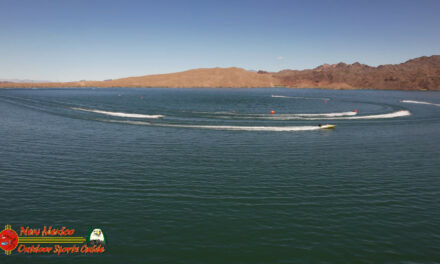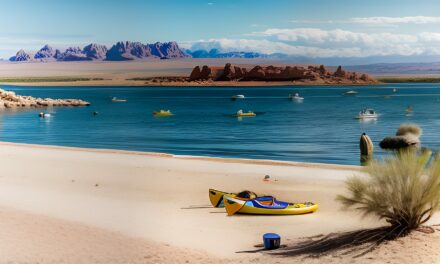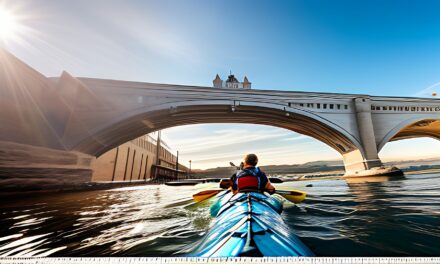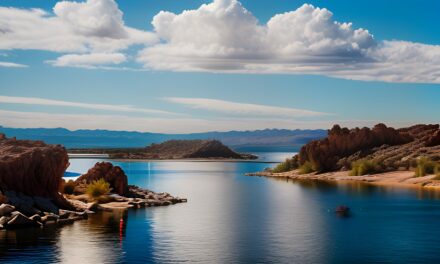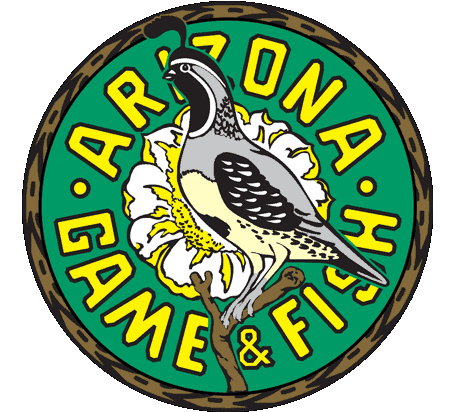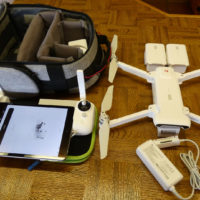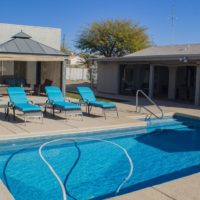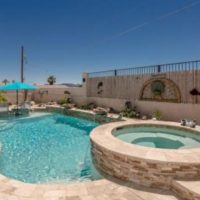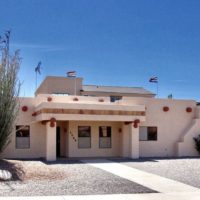July 2010
Toledo Bend Forecast
North End
Toledo Bend Guide Service & Lake Cottages
936.368.7151 www.toledobendguide.com
Most fish caught this time of year will be caught in deep water other than early morning, late evening or at night. To be successful in catching these deep- water fish a good understanding of the “Thermocline” is helpful.
– Lake Havasu
The thermocline is a thin layer of water in a lake that is sandwiched between the upper layer of water (the epilimnion) and the lower, colder layer of water (hypolimnion). Between these two layers you have a thin layer in which the water temperature drops substantially. This is known as the thermocline. Below this layer the water has very little concentrations of oxygen. Fish will suspend just above the thermocline where the water is the coolest and has plenty of oxygen. Wind speeds and ambient temperature readings have a large effect at what depth the thermocline is located. A deep diving crank bait that runs along the thermocline can be the key to catching bass this time of year.
Early morning, late evening and on cloudy days work the edges of the pepper grass, duckweed, and lily pads growing close to deep water with top water plugs, buzz baits, spinner baits, frogs, shallow diving crank baits, traps, soft plastics and finesse plastics. When the sun gets overhead and the shallow bit slows down, back out to deeper water and work deep diving crank baits, slab spoons, tail spinners and Texas or CR rigged plastics. Nighttime is the right time to catch numbers and size as the bass feed more at night and the water cools down. Large noisy top water plugs, buzz baits, spinner baits and large dark plastics work well.
The White Bass will be moving all over the lake this time of year chasing shad. Watch for schooling fish along boat lanes, timber- lines, main lake points and flats close to the river channel. Keep a trap, shallow diving crank bait or top water plug handy when they start schooling. When they go down, throw a slab spoon or tail spinner.
Crappie holding in 12 to 25 ft of water over and in brush tops and main lake humps.
– Lake Havasu



